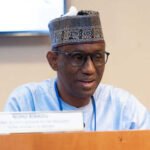Foundation for Partnership Initiatives in the Niger Delta (PIND) says its partnership with Deutsche Gesellschaft fur Internationale Zusammenarbeit (GIZ) GmbH will boost renewable energy and energy efficiency activities in Nigeria.
The organisations have signed an MoU to develop Nigeria’s human capital for improved access to renewable energy and energy efficiency through the Nigerian Energy Support Programme (NESP).
The NESP is a technical assistance programme co-funded by the European Union (EU) and the German government and implemented by GIZ in collaboration with Nigeria’s Ministry of Power.
The programme aims to enable and foster investments in a domestic market for renewable energy and energy efficiency as well as improve access to electricity for disadvantaged communities across the country.
Chief Executive Officer of All-On, Wiebe Boar, had said during a webinar organised by the Sustainable Use of Natural Resources and Energy Finance (SUNREF) that Nigeria’s energy gap offered an opportunity for the country to develop its renewable energy sub-sector in addressing its energy challenges.
‘The size of the energy gap in Nigeria is between 30GW and 175GW and would cost between $40 billion to $200 billion to address’, he said.
‘Nigeria spends $15 to $20 billion annually on power, which is ten times the grid.
‘This is also a market opportunity for providers of constant, reliable electricity, such as mini-grids which are a potentially $10 billion market’.
Through the NESP programme, PIND and GIZ will facilitate courses that confer professional qualifications to 200 young Nigerians which will be relevant to the development of Nigeria’s renewable energy sector.
The organisations, in 2019, implemented the Skills Development for Youth Employment (SKYE) programme, a four-year programme funded by the German Federal Ministry for Economic Cooperation and Development (BMZ).
Source: PIND
Photo source: GIZ




